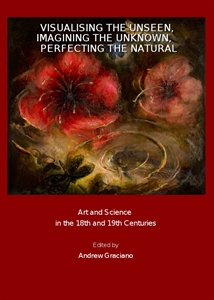Visualising the Unseen, Imagining the Unknown, perfecting the natural
art and science in the 18th and 19th centuries
- ISBN: 9781847185426
- Editorial: Cambridge Scholars Publishing
- Fecha de la edición: 2008
- Lugar de la edición: . Reino Unido
- Encuadernación: Cartoné
- Medidas: 21 cm
- Nº Pág.: 230
- Idiomas: Inglés

Throughout history, both art and science have been employed to visualise things unseen and to image/imagine things unknown as part of the quest to understand nature. In light of this, perhaps our contemporary tendency to see art and science as completely divergent, mutually exclusive fields of study with similarly distinct methodologies may be profitably re-examined. This volume brings together recent work by both junior and senior scholars treating the art/science connection in eighteenth- and nineteenth-century art. The essays are individual case studies dealing with historical interconnections between drawing, painting, sculpture and book illustration and such diverse fields of science as botany, physics, geology, and evolutionary biology. As a whole, the book invites readers to question more generally: What is art's relationship to science and vice versa? At what points do the two disciplines intersect and/or complement one another? Can science directly inform artistic subjects? Is art a useful tool to focus a scientific lens on the past, to validate or challenge scientific theory, to inspire and encourage scientific inquiry? Can it be employed successfully as a means to visualise scientific ends? Do artists have the potential to create images and objects whose meanings surpass the laws of science and outlast its theories, whose functions are similarly universal and arguably more immediately accessible (legible) to the public? If art, like text and data charts, has the power to create, organise and disseminate information (knowledge), then why do we continue to privilege scientific research over artistic investigation? Would it not be more fruitful and humane to see them as more equitable modes of inquiry?






